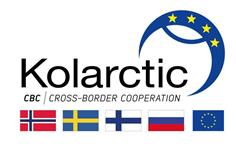
- Project: КО197 “Trilateral Cooperation on Our Common Resource; the Atlantic Salmon in the Barents Region”
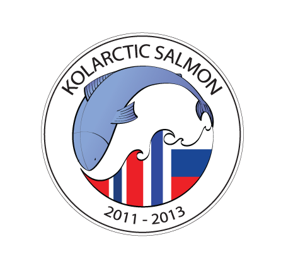
Project: КО197 “Trilateral Cooperation on Our Common Resource; the Atlantic Salmon in the Barents Region” was an international project with the participation of Norway, Finland and the Russian Federation.
Through a concerted effort of managers, researchers and fishermen from the participant countries the project combined and applied modern research technologies and traditional knowledge of the three countries to enhance long-term sustainable and scientifically substantiated management of salmon stocks in the North.
Implementation period: 2011–2013
Funded by: The project was financed under the Kolarctic ENPI CBC. Programme of the European Union, by the participating countries and partners.
Partners: Project partners were the Norwegian Institute of Marine Research (IMR), the Norwegian Institute for Nature Research (NINA), the Polar Research Institute of Marine Fisheries and Oceanography (PINRO) in Russia, the University of Turku and the Kevo Research Station (UTU-Kevo) in Finland, and the Finnish Game and Fisheries Research Institute (FGFRI).
Read more: Kolarctic salmon Key findings
Additional information is available at: https://prosjekt.fylkesmannen.no/Kolarcticsalmon
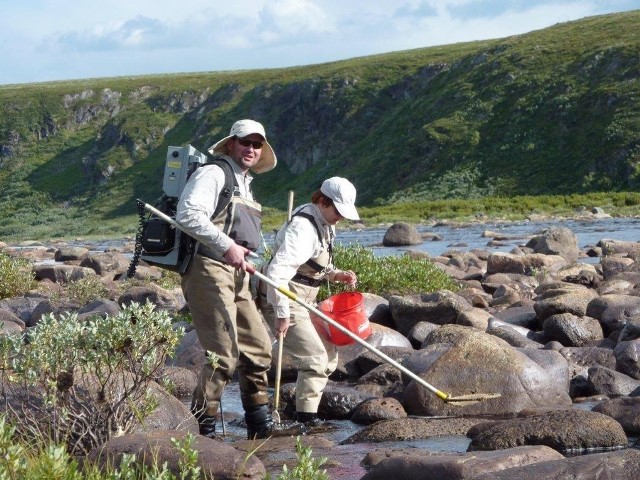
- Project: КО187 “Coastal Environment, Technology and Innovation in the Arctic”
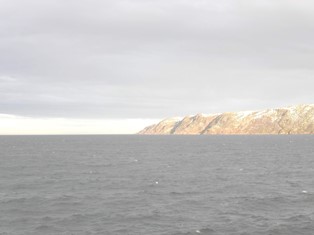 Project: КО187: “Coastal Environment, Technology and Innovation in the Arctic” was an international project with the participation of Norway, the Russian Federation and Sweden.The objective of the project was to contribute to the development of new approaches to monitoring of coastal environment and new bioremediation technologies, to the development of academic exchange and the master programme in “Environmental Management in the Arctic”.
Project: КО187: “Coastal Environment, Technology and Innovation in the Arctic” was an international project with the participation of Norway, the Russian Federation and Sweden.The objective of the project was to contribute to the development of new approaches to monitoring of coastal environment and new bioremediation technologies, to the development of academic exchange and the master programme in “Environmental Management in the Arctic”.Implementation period: 2011–2013
Funded by: The project was financed under the Kolarctic ENPI CBC Programme of the European Union, by the participating countries and partners.
Partners: Project partners were the University of Tromsø (UiT) and Akvaplan-Niva (Tromsø) in Norway, Luleå Technical University (LTU) in Sweden, Institute of Industrial Ecology Probems in the North (INEP), Murmansk State Technical University (MSTU), Murmansk State Humanities University (MSHU), Murmansk Marine Biological Institute (MMBI), Northern Arctic Federal University (NARFU), and Polar Research Institute of Marine Fisheries and Oceanography (PINRO) in Russia.
Additional information is available at: https://uit.no/prosjekter/prosjekt?p_document_id=294447
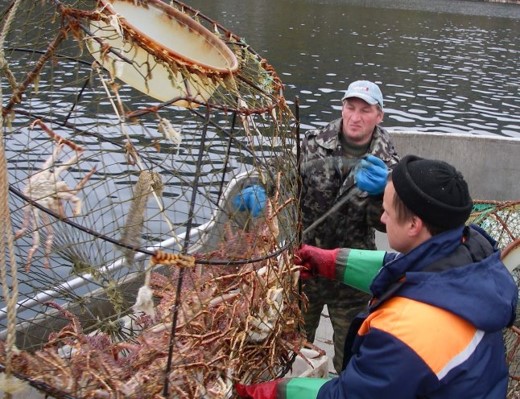
- Project: KO4178 “Conserving our Atlantic salmon as a sustainable resource for people in the North; fisheries and conservation in the context of growing threats and a changing environment"
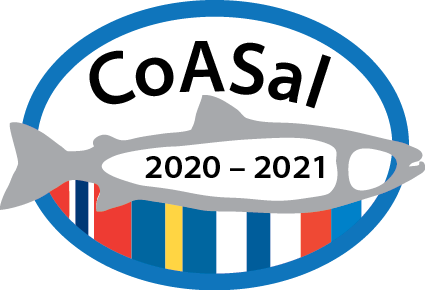
Project: KO4178 “Conserving our Atlantic salmon as a sustainable resource for people in the North; fisheries and conservation in the context of growing threats and a changing environment” is an international project with the participation of the Russian Federation, Finland, Sweden and Norway. The objective of the project is to examine the effects of the new sea salmon fishery regulations, study the growing threats Atlantic salmon populations face today with climate change, growing cage culture industry and emerging diseases.
Implementation period: 2020-2021
Funded by: The project is financed under the Kolarctic CBC Programme of the European Union, by the participating countries and partners.
Partners: Project partners are the Polar Branch of FSBSI “VNIRO” (Russian Federation), the Biodiversity Unit of the University of Turku (Finland), the Swedish University of Agricultural Sciences, and the Norwegian Institute of Marine Research (IMR).
Read more: CoASal
Additional information is available at: www.fylkesmannen.no/coasal
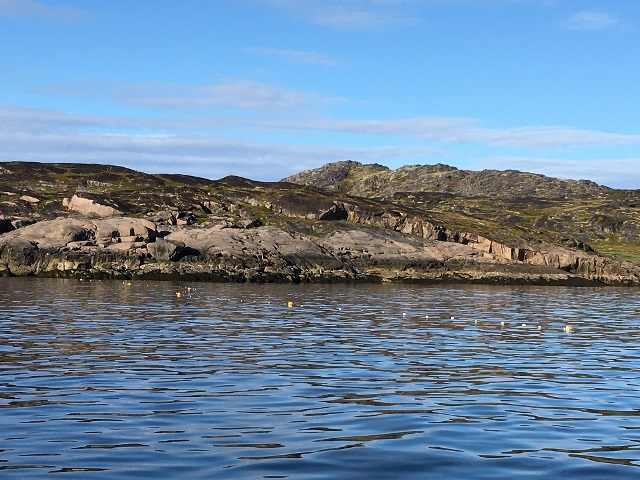
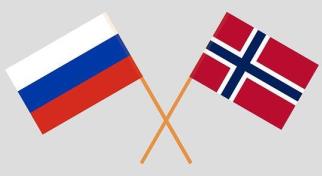
- Russian-Norwegian projects
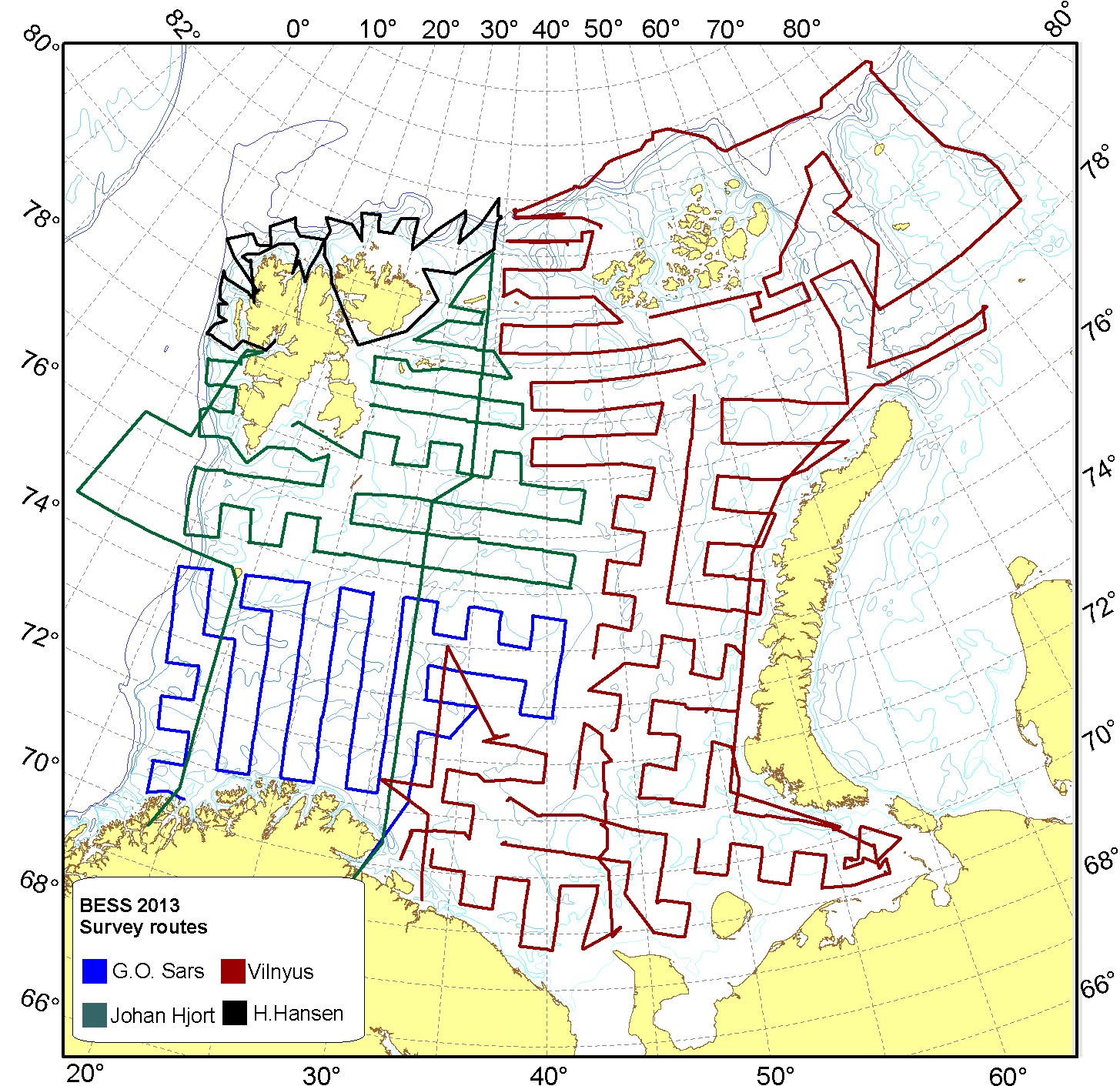
Russian-Norwegian Ecosystem Survey in the Barents Sea
The Polar Branch has a long history of cooperation with Norwegian research institutes and university centres, such as the Norwegian Institute of Marine Research (IMR) (http://www.imr.no), the Norwegian Institute for Nature Research (NINA) (https://www.nina.no), and the University of Oslo (UiO) (https://www.uio.no).
The closest contacts have developed with the Institute of Marine Research, the main scientific partner of the Polar Branch in investigations of living marine resources of the Barents and Norwegian Seas. Many areas, types and instruments of cooperation have evolved to become traditional, the cornerstone of joint research being the Joint Russian – Norwegian Scientific Research Program on Living Marine Resources adopted annually by the Joint Russian-Norwegian Fisheries Commission (JRNFC) as a part of its annual Protocols. In 2018, “PINRO” named after N.M.Knipovich and the Institute of Marine Research celebrated 60 years of cooperation.
Among research projects with Norwegian scientific organizations of recent years the following can be highlighted:
- “Cooperation for Enhanced Knowledge of the Marine Resources of the Barents Sea”;
- “Arctic fish distributional atlas and identification guide – Atlas & Guide”;
- “Long-term Effects of Local Scale Oil pollution on Fish Populations and Communities in the Lofoten-Barents Sea System (OILCOM)”;
- “How do a dominant predator and climate shape fish biodiversity over space and time in large marine ecosystems? (FISHDIV)”;
- “Barentshavet i endring – konsekvenser for økosystemets struktur, virkemåte og sårbarhet for menneskelig påvirkning (Barents Sea Ecosystem Structure, Functioning and Vulnerability under Climate Change (BSECO))”;
- “Cod: Diet and Food Web Dynamics (CoDINA)”;
- “Factors Influencing Fish Extinction and Colonization on the Oceanic Banks (DRIVEBANKS)”;
- “Drivers and Effects of Spatial Shifts in Early Life Stages of Marine Fish (SpaceShift)”.
